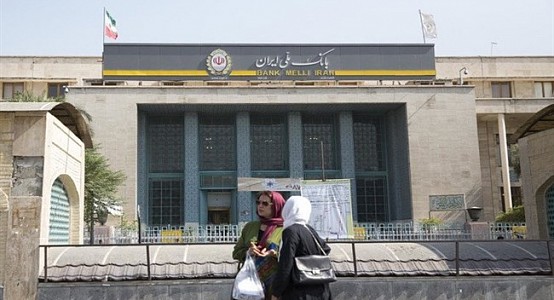Small German banks intend to continue working with Iran, despite US sanctions threat

Beijing. May 29. Silkroadnews - Germany’s biggest banks have abandoned business with Iran after the problems faced due to violation of the US sanctions, yet the smaller banks are not going to refuse cooperation, the Iranian Telegraph Agency reports.
Only a few months left until the expiry of the November deadline set by Washington after the US president stepped down from an agreement easing restrictions on business in the Islamic Republic. However, some companies plan to continue their relationship with Iran, despite the imminent threat of penalties, Iran Daily writes.
Patricia Melfi, director of the International competence center (KCI), founded by six co-operative savings banks in the small town of Tuttlingen, southwestern Germany, says the organization she works for will continue serving its customers.
The center, which supports companies operating in sensitive markets such as Iran or Sudan, sees the sharply increased demand from companies in the Dax (Germany’s index of blue-chip firms), across Germany and Switzerland, she added.
Germany’s exports to Iran grew after a nuclear deal was signed in 2015, with a 15% increase last year and reaching almost €2.6 billion ($3 billion) after a 22% growth in 2016.
These numbers, though, are still insignificant compared to the €111.5 billion export of Germany to the US - its top client.
Nevertheless, the KCI “will wait and see what the sanctions look like” before turning away from Iran, Melfi said.
Transactions are carried out in euros, and KCI does not engage in a business in which US citizens or holders of green card holders participate.
Moreover, the products sold to Iran cannot contain more than 10% of the parts produced in the United States.
Melfi said that one of the most important contributions to the business is the “courage of managers” in view of high risks.
Another German bank working with Tehran is the European-Iranian Trade Bank (EIH), set in 1971. Based in Hamburg, the bank assures customers on its website that its services are fully accessible to its customers, although “business policy decisions by European banks may result in short-term or medium-term restrictions on payment.”
In addition, the Bundesbank (German central bank) does not believe that much has changed in business with Iran, saying that only the EU sanctions regime will have meaning if it is introduced.
The German bank lobby group Kreditwirtschaft has called on Berlin and other EU countries to clarify their position and make sure that banks and their customers are “effectively protected against possible US sanctions.”


